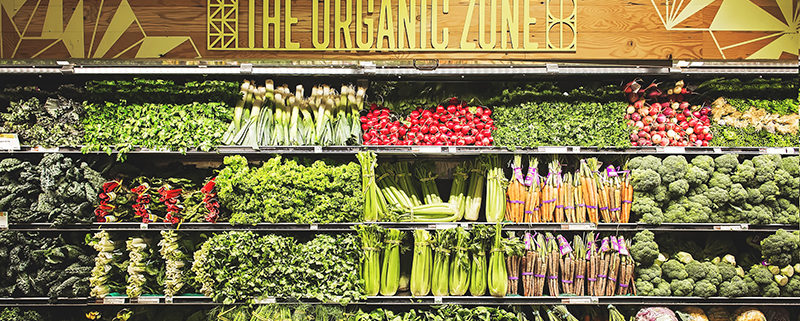Is This German Grocer the New Whole Foods?
When asked why they don’t make healthier decisions at the grocery store, many people cite price as a key issue; It is less expensive to buy prepackaged foods and inorganic produce. In response to this issue, Whole Foods launched its first lower-cost store, 365 by Whole Foods Market, in the Silver Lake neighborhood of Los Angeles earlier this year. Now, German grocery chain, Aldi, is looking to not only rival Whole Foods, but beat them at their own game.
Earlier this year, Aldi took major steps to appeal to health conscious consumers by removing artificial colors, MSG, and partially hydrogenated oils from its in-house brand. They also removed antibiotics, hormones, and animal by-products from their “Never Any!” meat line. With prices on fresh produce and packaged goods estimated at 30% cheaper than Walmart, Aldi has poised itself to be a major competitor in the rising market for cheap organic food. More recent Aldi store openings show that the chain has taken some pages out of 365’s playbook, rethinking its store design. Its opening in Richmond, VA in late October debuted more natural lighting and wider aisles, and electronic displays, rendering the store “almost identical” to 365.
Of course, the reduction in cost comes at a price to the consumer. Aldi remains a “no-frills” grocer, lacking some of the amenities to which shoppers may be accustomed. Like 365, Aldi stores lack deli counters, butchers, and fish mongers. Customers are also required to bag their own groceries. With the chain quickly expanding across the United States, Aldi’s lack of luxury appears not to deter potential shoppers. In the race to make the healthy option the least expensive, it seems that price is king.
Have you shopped at 365 or Aldi? Where do you shop for organic food? Share with us in the comments.




